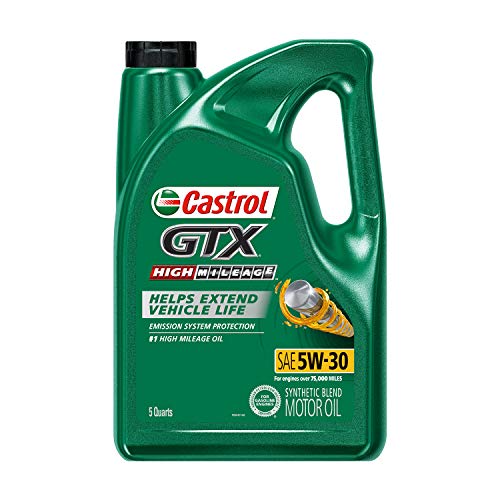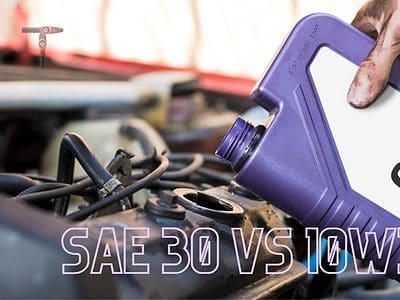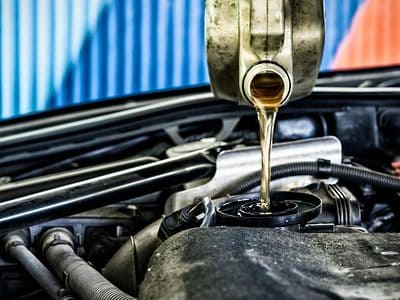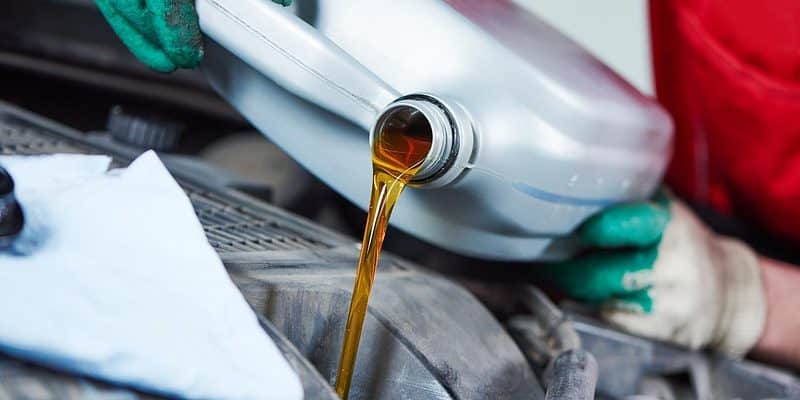
Readers like you help support TorqueDial. When you make a purchase using links on our site, we may earn an affiliate commission at no extra cost to you. All opinions remain ours. Read more.
It is common knowledge that any vehicle with over 200,000 miles undoubtedly has more wear and tear than a new engine.
As car engines age, gaps form between components, leading to leaks. Seals and gaskets also tend to dry out, crack, and oil begins to burn off between changes.
These ultimately shorten the life of the engine. However, these effects can be managed with the right high-mileage oil. This post will uncover some of the best high mileage oils for your car engine.
Choosing the Right Oil for Your Car With Over 200000 Miles
When choosing the right Mileage oil for your car, there are a few factors you ought to consider. Here are the most important ones:
1. Nature of Usage of Your Car
The type of oil you purchase is highly determined by the nature of the usage of your car. It is common knowledge that a vehicle with a little under 200,000 city miles is highly likely to be as worn out as one with well over 200,000 highway miles.
This is due to the numerous and frequent alterations in the engine’s performance mode when driving along city roads.
On the other hand, when driving across highways, the engine runs at steady temperatures, operates at peak efficiency, and experiences fewer starts and stops.
This knowledge is essential as it would determine if you need to get a more superior synthetic high-mileage oil or a less superior synthetic blend, which will have an almost identical effect on your vehicle.
2. Current State of Your Engine
When car engines develop minor faults like oil leaks and burning oil, switching to a better-suited conventional high-mileage oil usually saves you the pain of making major repairs.
On the other hand, severe issues may only be remedied by high-quality synthetics or visiting your mechanic.
3. Cost of the Oil
Amongst other factors, Price is probably the sole determiner of your final decision as it would determine if the motor oil of your choice is within or beyond your means, enabling you to make the best-suited pick for your specific use.
That said, let’s explore our picks for the best oil for cars with over 200,000 miles!
Best Synthetic Oil for Cars With Over 200000 Miles: Mobil 1 Full Synthetic 5W-30
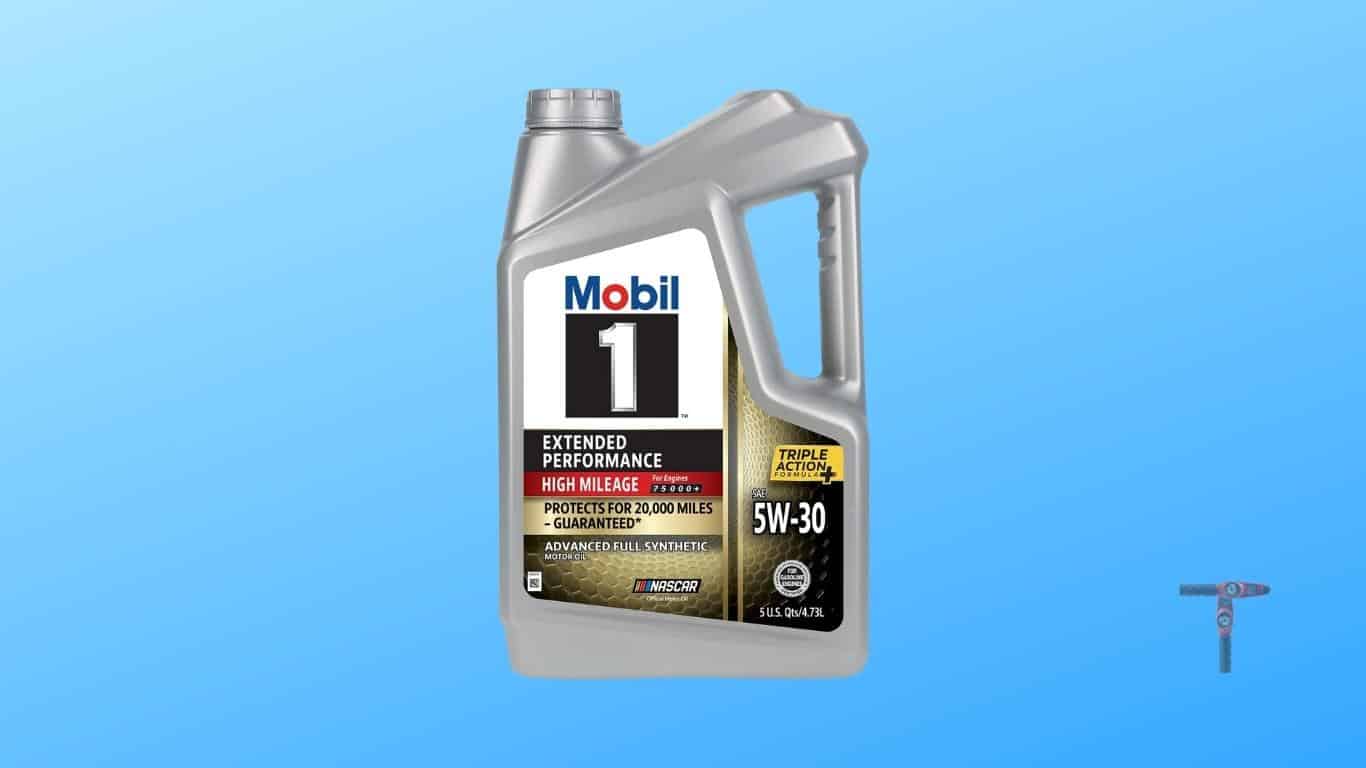
Mobil 1 high mileage full synthetic 5W-30 is the best synthetic oil for your car with over 200,000 miles. It offers superior protection for your engine and lasts long intervals (up to 10,000 miles) between changes.
It also works well in extremely high temperatures (up to 500 degrees Fahrenheit) and low temperatures (to -30 degrees Fahrenheit).
This Mobil 1 product is often considered the best high-mileage oil. This is no surprise as it is not only America’s #1 selling synthetic motor oil but also trusted and recommended by car builders and experienced mechanics.
The only drawback to this oil is the price which is much above that of regular oils.
Best Synthetic Blend for Cars With Over 200000 Miles: Valvoline SAE 10W-30 Synthetic Blend
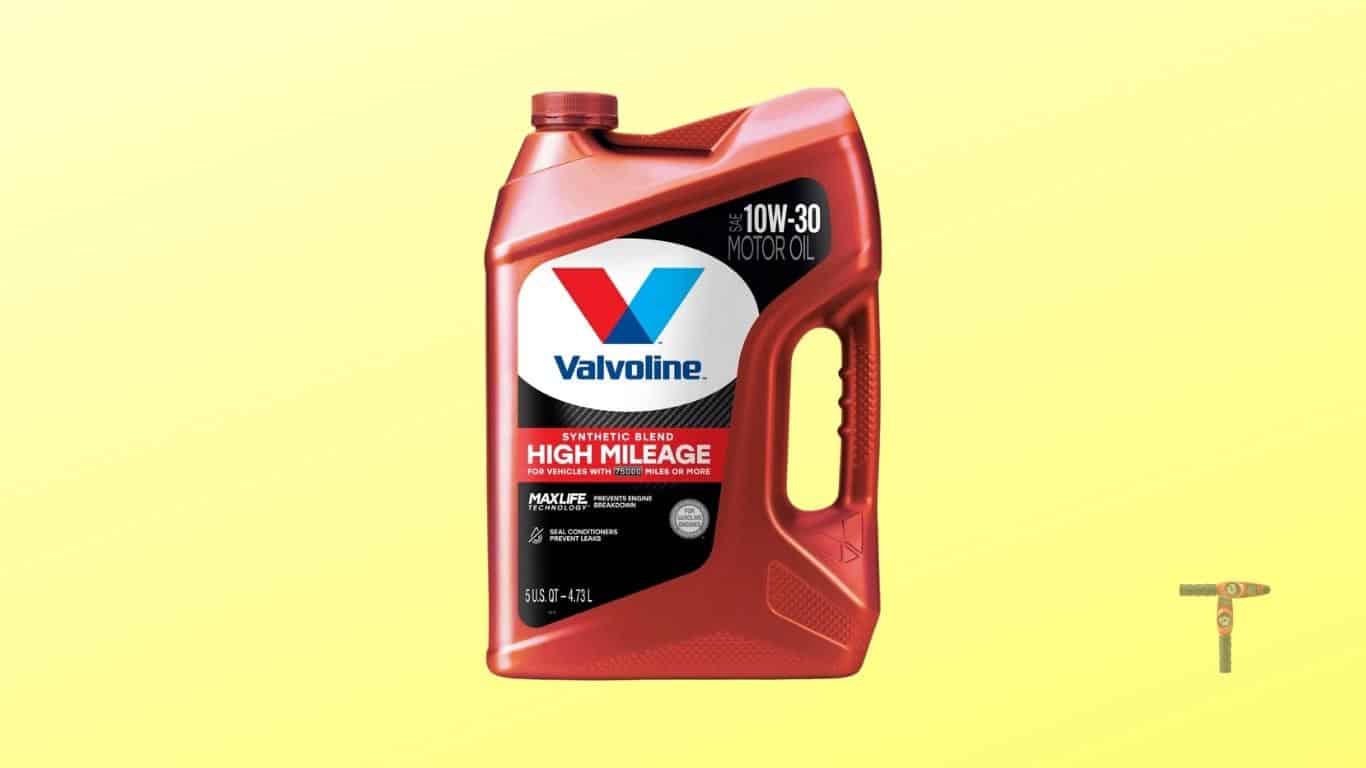
Valvoline is a highly renowned brand when it comes to automotive care, and its synthetic blend motor oil is right at the top.
Valvoline high mileage SAE 10W-30 synthetic blend is a reasonably priced motor oil that uses a blend of additives to meet the specific needs of high-mileage cars.
It prevents leaks and provides lubrication to reduce potential harmful abrasion in the engine. It also removes sludge and deposits, preventing engine clogging.
Best Conventional Oil for Cars With Over 200000 Miles: Pennzoil Conventional 10W-30
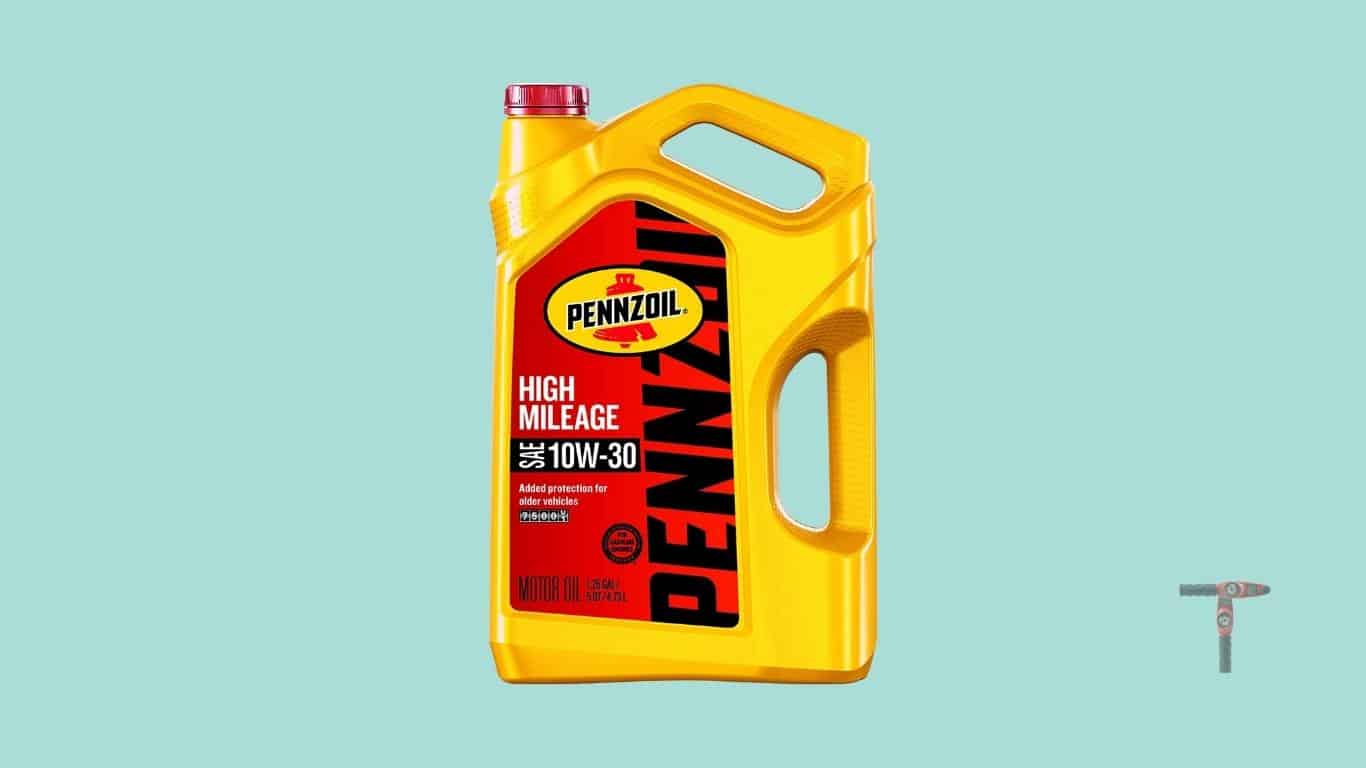
Are you searching for conventional oil for your car with over 200,000 miles? If yes, then Pennzoil high mileage conventional 10W-30 is your best option.
It provides excellent wear protection for older engines and is very effective in stopping and preventing leaks in your older engine.
The oil is also very cheap and affordable. The only setback is that it does not perform well in extreme conditions and needs to be changed frequently.
Best Value Oil for Cars With Over 200000 Miles: Castrol GTX 5W-30
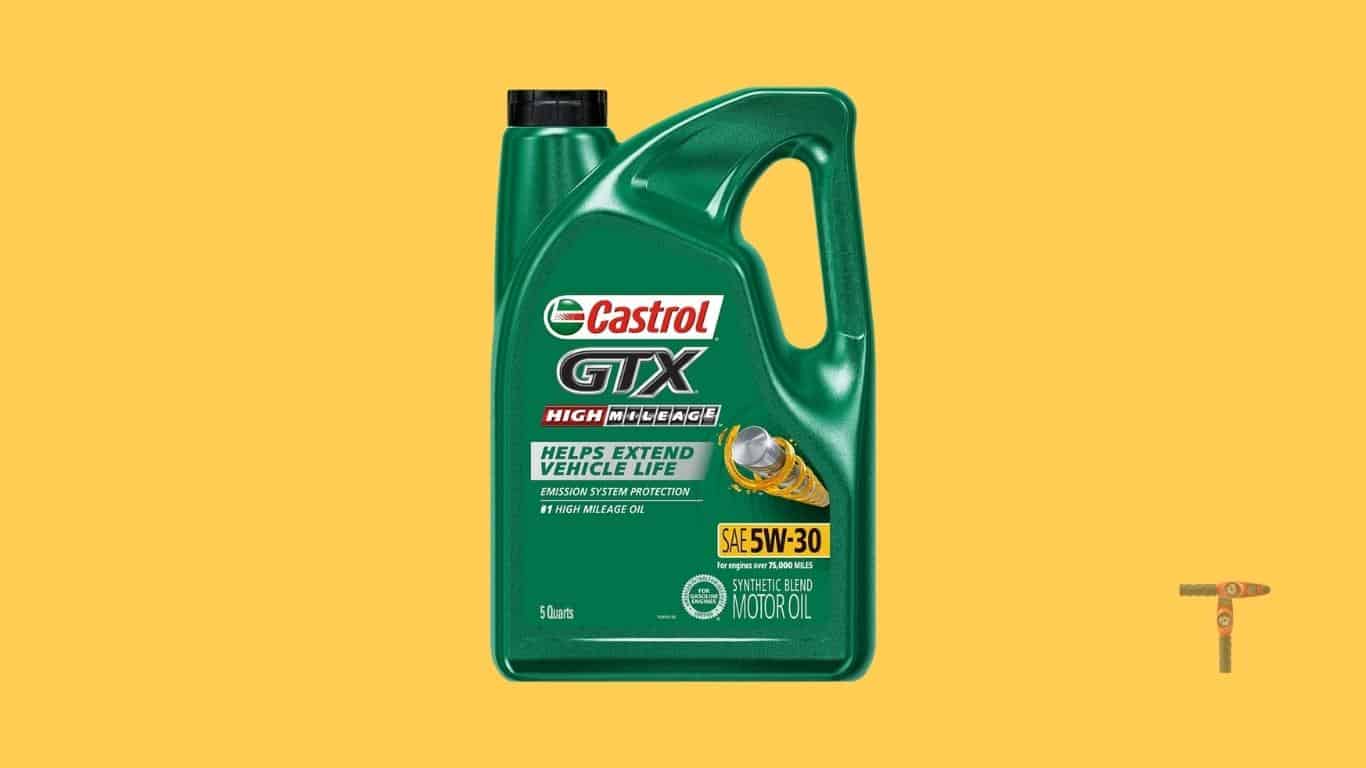
If you’re looking for a cheap high-mileage oil produced by a highly trusted brand, Castrol GTX high mileage 5W-30 synthetic blend is the right oil for you. This synthetic blend prevents oil burnoff and sludge buildup in much older engines.
It also helps to keep your catalytic converter in excellent working condition, thereby reducing the risk of having to replace your catalytic converter.
Although this product is not as effective as the other oils mentioned in terms of preventing leaks, sludge buildup, and oil burnoffs, it is still a great option as it can easily be afforded.
Best Premium Oil for Cars With Over 200000 Miles: Amsoil 10W-40 Synthetic
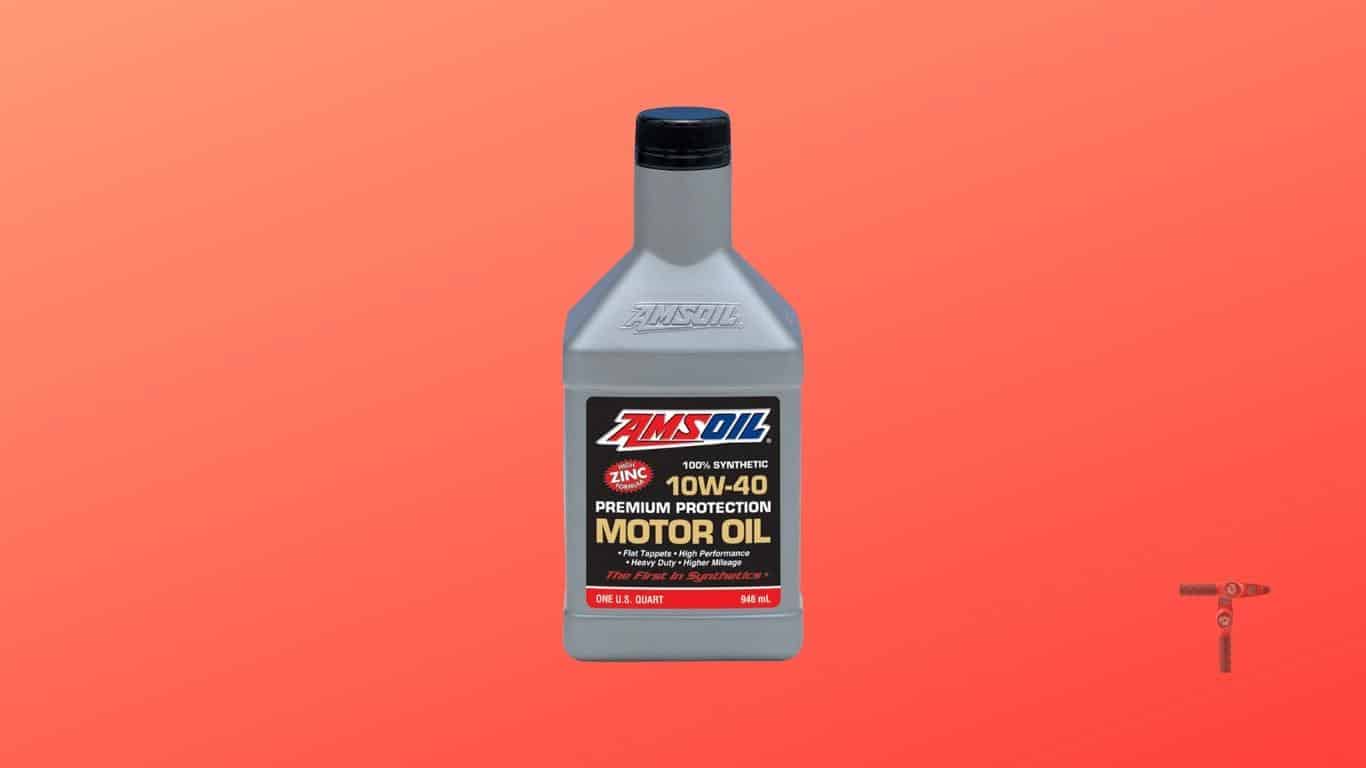
Amsoil 10W-40 is the best choice for anyone looking for a premium protection synthetic oil with compatibility for use in both gasoline and diesel engines.
It offers multi-functionality and is also ideal for applications where the extra protection of a higher-viscosity oil is required.
In addition, it is applicable for wet-clutch transmissions, older vehicles, and other types of modern equipment.
Benefits of Using High Mileage Motor Oil in an Older Engine
Compared to regular oil, high mileage oil has many benefits for old engines. Here are some of them:
Clears Engine Oil Sludge
Sludge is a tar-like residue that builds up over time in an engine due to oil thickening or breakdown. Because it’s directly related to oil aging, infrequent changes are the major predisposing factor, even more so in an older car. However, high-mileage oil helps to remove most of the sludge while cutting on wear in older engines.
Reduces Engine Oil Leaks
Engine seals tend to erode with time, causing oil to leak. High-mileage motor oil contains additives that rejuvenate and protect worn seals, curbing leaks from older vehicles. Also, the low volatility of high-mileage oils reduces the rate of oil loss from burning.
Curbs Engine Wear and Tear
All things wear out with age, and car engines are no exception. High mileage oils help reduce wear and protect vital engine components.
Is High Mileage Oil Thicker than Regular Oil?
High mileage oil is not thicker than regular oil of the same grade. In other words, a high mileage 5W30 would have the same viscosity as a regular 5W30 oil—the same as a 10W30 or 0W30.
However, high-mileage oils contain durable viscosity modifiers that won’t diminish as fast as regular oil. This allows them to stay the same for longer, protecting your engine parts.
Should I Use Thicker Oil in a High Mileage Engine?
If your engine is still in good shape, it shouldn’t burn oil. In that case, there’s no reason to use a more viscous option.
However, some recommend switching to a thicker oil in an older engine with leaks and burn-offs to minimize oil loss. However, you really don’t need to do this.
Here’s why.
You’d be switching to an oil grade that’s not recommended by your manufacturer. Even though the car will likely already be out of warranty, the engine—though worn—is still the same and may not perform well with thicker fluid.
Your best bet is to use high-mileage oil of the same grade as the regular oil you’ve been using in your car.
Conventional vs Synthetic Motor Oil for Cars Over 200000 Miles
More often than not, synthetic oil is the better option for most cars, high mileage included. It flows better at colder temperatures, which is great for engine starts in the mornings, especially in colder regions. It also lasts longer, requiring less frequent changes compared to conventional oil.
Synthetic oils tend to have higher thermal stability, which prevents their oil layer from breaking down at higher temperatures. They’re also more resistant to oxidation—and the resulting color change and thickening—which occurs when engine oil is exposed to heat and air.
Of course, synthetic oil is generally costlier than conventional oil. However, for most manufacturers, the price difference is usually a few extra dollars—compared to the benefits, it’s definitely worth the extra.
Why You Should Regularly Replace the Engine Oil of Your High Mileage Car
A regular oil change is very important for both new cars and cars with over 200,000 miles. Oils have a lifespan (which heavily depends on how much you use your car), after which further use causes sludge build-up and increases the chances of damage.
Also, driving on poor-quality oil (oil that has reached the end of its useful life) may contaminate your lubrication system with dirt and other foreign materials. The engine may burn fuel improperly, as a result, causing your car to run inefficiently.
Tips To Follow When Purchasing a High Mileage Oil
- Always go for trusted brands.
- Full Synthetics are always the best.
- Always check out other people’s reviews and feedback about the oil you’re about to buy.
- Stick to the instructions and recommendations in your Manufacturer’s Manual.
FAQs
Is Synthetic Oil Better for High Mileage?
Synthetic oil is generally better for high-mileage engines than traditional oils. It also lasts longer, reducing oil consumption. If you can afford it, synthetic oil is typically the best option for any vehicle.
What Are the Disadvantages of Synthetic Oil?
The main disadvantage of synthetic oil is that it’s costlier than standard oil. It may also slightly reduce your vehicle’s fuel economy. However, considering how much longer it lasts than regular oils, it is worth using if you can afford it.
Are High Mileage Oils Worth the Extra Cost?
Yes, high-mileage oils are worth the extra cost. They contain additives that help prevent sludge buildup, leaks, burnoffs, smoke, and emissions in older engines. Therefore, it is advisable to switch to high-mileage oils if your car is over 200,000 miles.
However, for new vehicles, stick to your manufacturer’s guidelines, especially during the warranty period.




